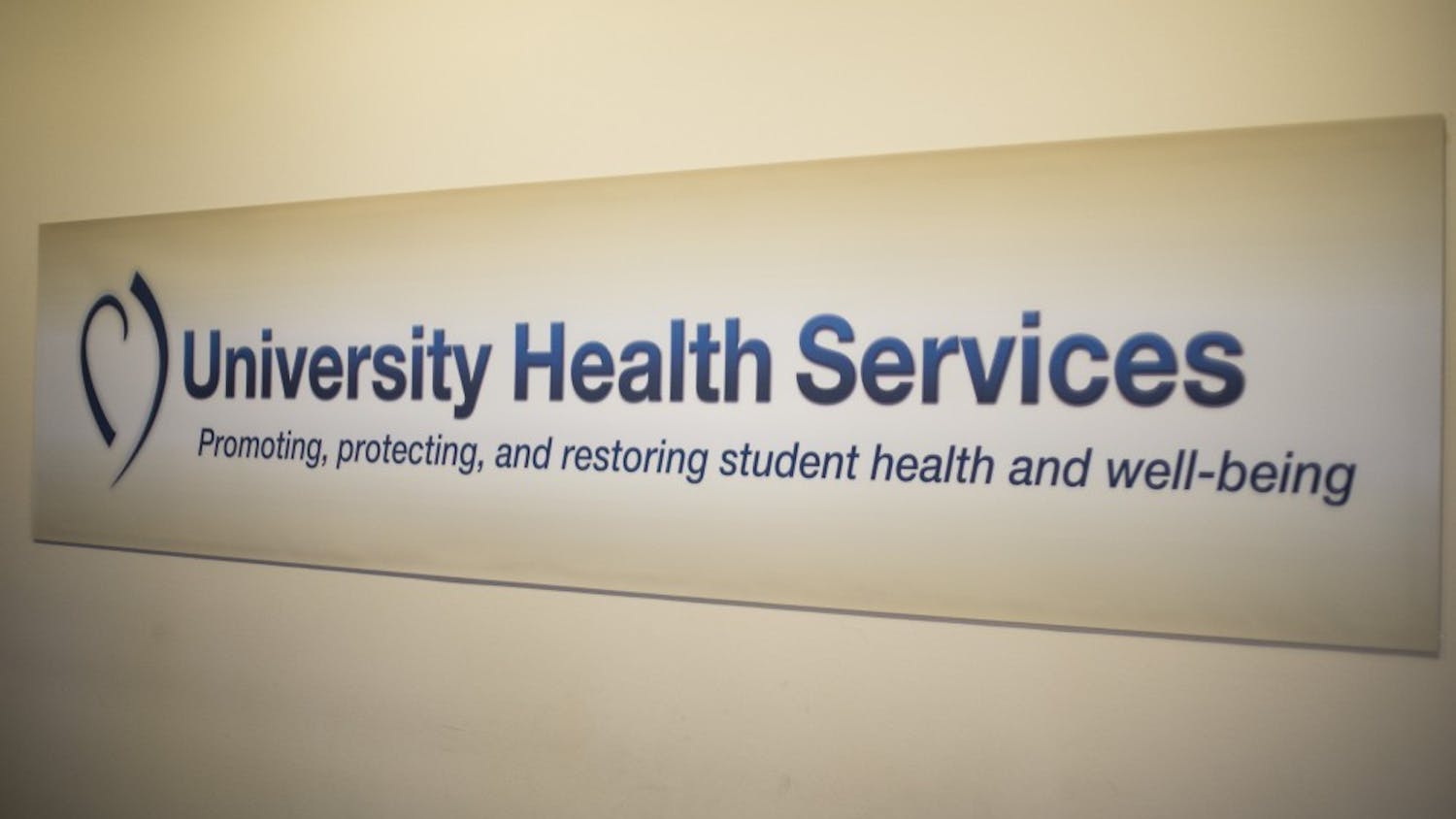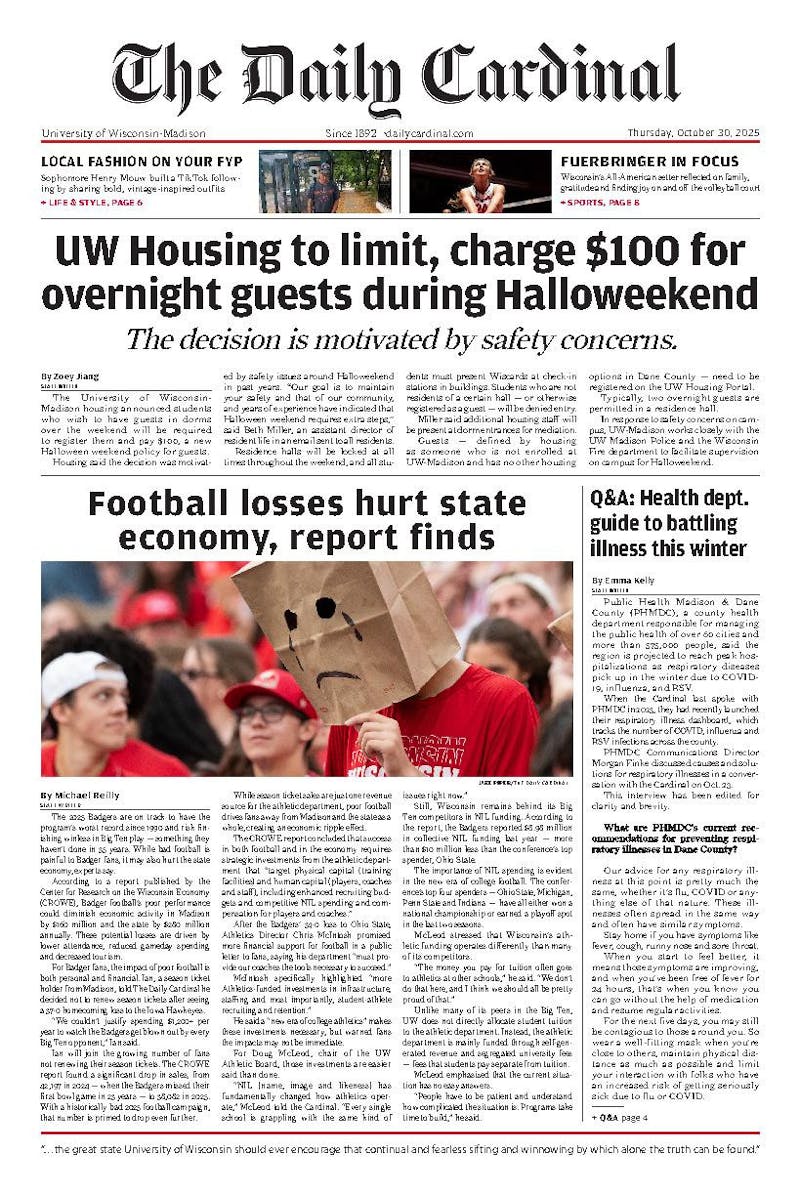Dozens of international student workers who have been telecommuting to jobs at UW-Madison from outside the U.S. since the semester began in September have yet to be paid for their work.
According to an email from Human Resource officials at the university, officials were unaware of student workers telecommuting from outside the country until recently and will pay students for any hours already logged — though they did not specify when. However, per a decision made by university HR in early July, students telecommuting from outside the country will not be able to hold hourly positions going forward.
“If [the university] had student hourly workers that put in work and hours this fall, we owe them,” said Mark Walters, Chief Human Resources Officer at UW-Madison. “If there are individuals who have worked for us without pay, we need to pay them. But we have indicated that going forward student hourly work should not be occurring outside of the U.S.”
Although the university’s decision not to extend hourly jobs to international students was made over the summer, student organizations such as the Associated Students of Madison (ASM) say they were not informed of the policy until international hires were already made.
When university HR made the internal decision not to bring back international student workers in July, no public comment was made — instead HR reps were supposed to reach out to organizations individually to provide updates on hiring policy. ASM Chair Matthew Mitnick said that the student council was never contacted by an HR representative and got blindsided by the policy.
“There was a new box on our payroll forms this year that asked if you were in the U.S. or not — it felt really weird,” Mitnick said. “Then we found out people who checked ‘Not in the U.S.’ got an email from HR administration informing them that they wouldn’t be paid for their labor… I was like, ‘what the hell?’”
Brian Li, an ASM Student Rep who is currently living at home in China, said he didn’t know about the policy in place until he heard other international representatives talk about not being paid.
“The funny thing is that I mistakenly circled ‘In the U.S.’ at first, and got put on payroll,” Li said. “But I realized pretty quickly based on conversations with other international students that I shouldn’t be on that list and got myself taken off. The confusing thing is that throughout this process there wasn’t one problem with me being on payroll — I figured out I was wrong, not the university.”
Walters says restrictions on international student telecommuting is necessary due to “risks and liabilities” such as national export control, cybersecurity and international taxes.
“For each country, [employment] laws are different, tax laws are different and everything can change based on your employment position,” Walters said. “When employees access our network from outside the states there are security issues — we have to take all these things into account.”
While Mitnick and Li both believe back pay is a good start, reciprocative payments for prior work doesn’t solve the problem of students not being allowed to telecommute from outside the country going forward.
Part and full-time university employees are able to telecommute from outside the country under the July rule changes and are paid for their work. Restrictions only exist for students not in the country, who are hourly workers.
“I know that there are risks involved with international telecommuting, but we just want student employees to have the same rights as part- and full-time employees,” Mitnick said.
Currently, the university does not consider many of the student jobs filled by international students as ‘essential’ and therefore are under no obligation to provide those employment opportunities.
“Most of the students in hourly positions are doing administrative work, and those aren’t exactly ‘mission critical’ to the university,” Walters said. “We obviously value students working in those roles, but the risks and costs involved prevented us from extending [telecommuting] opportunities.”
Li said he and his peers feel their work is essential on ASM’s Grant Allocation Committee.
“My input and voice should be beneficial to campus — I’m an elected student representative, I didn’t just go out and choose this job,” Li said. “[The university] is now kind of discouraging me from doing that job in the first place.”
ASM Legislation
Mitnick, Li and other student representatives drew up legislation for ASM that would further push the university to allow international students to telecommute to work; however, in a decision that surprised them Tuesday night, the body voted to table the bill for at least a week before revisiting it.
“We did not see this coming at all,” Mitnick said. “We thought people would rally behind this bill.”
Mitnick says an email from Walters — that mentioned the risks of international telecommuting and back pay for any work completed — was forwarded by the Dean of Students Christina Olstad to the entire student council just an hour before the meeting. The exact same email had been sent on Monday morning to only Mitnick, Li and the other authors of a Letter to the Editor.
“I feel really betrayed by the Dean — she told us she supported the bill, and then turned around and sent an email on Walter’s behalf that contradicts some of the legislation, which made a few representatives second guess the bill,” Mitnick said. “But of course that email contradicts the bill, [proving] the administration doesn’t agree with us.”
Despite the bill being tabled for now, Mitnick said he was confident it will pass next week at the Tuesday student council meeting.
“To me this whole situation isn’t just ‘fine’ — the people chose us [international students] to work,” Li said. “An HR rep even asked me if I wanted to keep working in my position if I don’t get paid, and I said yes, because my input is valuable. It was a choice given to us, they are letting us work without pay.”
While ASM passing legislation would help push the university toward allowing international students to telecommute to work, the decision is ultimately up to Walters and the rest of the UW-Madison HR staff.
“I don’t want to trash on anyone, but some of the people against this bill are getting paid right now,” Mitnick said. “Maybe if they weren’t getting paid they would think something different — people should try to step out of themselves for a second and walk in someone else's shoes.”






